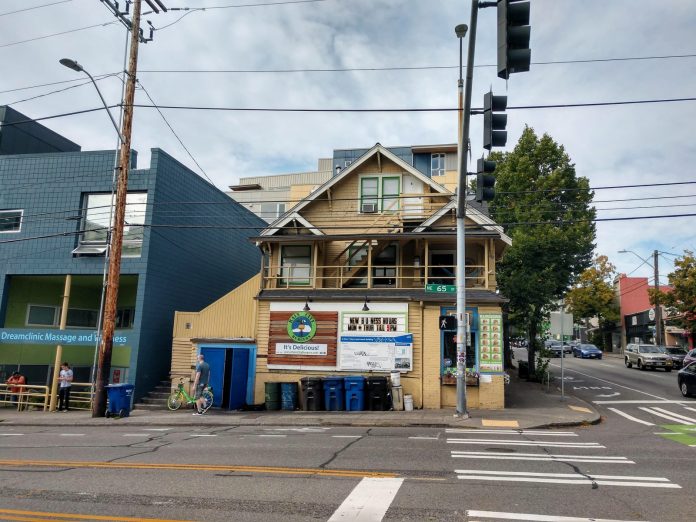
Seattle’s design review process has been on a hold for about a month now due distancing measures to contain the COVID-19 outbreak. Today, Mayor Jenny Durkan unveiled a work around to keep projects advancing so that the housing pipeline does not dry up, punctuating this crisis with another.
The Mayor released a draft of the emergency legislation that would permit design review to be conducted electronically by waiving the in-person meeting requirement for a six-month period. Since setting up virtual design review will take time, the bill also shifts projects facing full design review (before the volunteer boards) to administrative review, which is conducted by Seattle Department of Construction and Inspections (SDCI). Without the change, design review meetings were simply being postponed in hopes the risk of virus spread would dissipate.
Seattle City Councilmember Dan Strauss, who chairs the land use committee, issued a supportive statement in the mayor’s press release.
“Seattle’s need for more housing, especially affordable housing, was felt before the coronavirus crisis, and is more critical than ever for families suffering from the economic impacts of this health crisis,” Councilmember Strauss said. “I’m grateful our City staff is finding creative ways to ensure construction on important housing projects can continue.”
The Mayor’s Office said the plan would allow more than 30 projects representing 3,000 homes would benefit from the emergency bill, with City-funded affordable housing projects also being expedited.
“Upon Council passage, Mayor Durkan’s emergency legislation will allow design review projects to be reviewed by staff from the Department of Construction and Inspections (SDCI) and will expedite reviews for City-funded affordable housing projects projected to come online next year,” the press release said. “The legislation also authorizes the Department of Neighborhoods to keep projects on track by allowing historic preservation staff to execute required approvals for minor changes to City Landmarks, Special Review Districts, Landmark Districts, and Historical Districts.”
Mayor Durkan acknowledged that the City was in uncharted territory trying to maintain services during a pandemic likely to drag on for months and months.
“There’s no roadmap for how we need to reinvent city government, but as we navigate this public health crisis, we have to turn to unconventional ways to ensure our City work and projects move forward in a responsible way that keeps everyone safe and healthy,” said Mayor Durkan. “Our boards and commissions are essential to development in our City and by making these administrative changes, we will be able to fulfill regulatory milestones, keeping us on track to support businesses and develop the housing we desperately need.”
Whether this could be a ‘let no crisis go to waste’ situation remains to be seen, but some urbanists have been calling for an overhaul of the design review process for years. Recent design review reforms did not go far enough to please some. Some had argued that having professional staff rather than volunteer boards conduct the review would allow a more predictable process with fewer unforeseen delays.
Doug Trumm is publisher of The Urbanist. An Urbanist writer since 2015, he dreams of pedestrian streets, bus lanes, and a mass-timber building spree to end our housing crisis. He graduated from the Evans School of Public Policy and Governance at the University of Washington in 2019. He lives in Seattle's Fremont neighborhood and loves to explore the city by foot and by bike.


